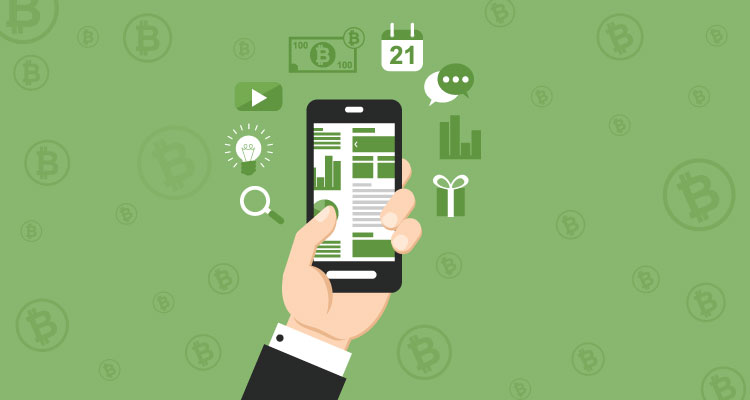When you think of cryptocurrency, chances are the first thing that comes to mind is Bitcoin.
By now, Bitcoin is something that most people are aware of — even if they aren’t exactly sure what it is.
Accepting cryptocurrencies can make sense for your business, whether you sell physical goods or whether you’re a freelancer. But using a cryptocurrency as a medium of exchange doesn’t mean you have to go with Bitcoin.
In fact, there are a surprising number of cryptocurrency alternatives to Bitcoin.

Table of Contents
ToggleIf you’re looking for something else to try, here are seven solid alternatives:
1. Dash
One of the cryptocurrency alternatives to Bitcoin that’s gaining a lot of ground right now is Dash. That’s because Dash is open source and very centered on privacy.
On top of that, there are low fees that come with Dash. To tell the truth, most cryptocurrencies are going to come with lower fees than what you pay with bank and credit card transactions. However, there are cases where it’s even free to send Dash.
It’s also nice that Dash is an instant peer-to-peer cryptocurrency. You don’t have to worry about it because payments are private, and instantly appear to the person on the other side of the transaction — anywhere in the world.
There’s a reason Dash is one of the most popular Bitcoin alternatives out there.
2. Litecoin
One of the oldest cryptocurrency alternatives to Bitcoin is Litecoin. This cryptocurrency has been around for several years. Interestingly enough, even though it is capable of handling a higher transaction volume than Bitcoin, it still isn’t as well-known.
Litecoin makes use of open source software and the decentralized network makes use of mathematics for security. Litecoin also comes with some cool features:
- Mining reward: It’s a little easier to mine Litecoin than bitcoin, and Litecoin miners can get 25 new litecoins per block (this amount is halved about every four years). In sheer numbers, that means there will be more currency units than is seen with Bitcoin.
- Wallet encryption: You can see your balance and transactions with this encryption, but you can’t actually spend your litecoins until you enter your password. This provides an extra layer of security against trojans and viruses.
Due to its availability and other features, it’s no surprise Litecoin is on the rise.
3. Peercoin
Peercoin is one of the most potentially inflationary cryptocurrency alternatives to Bitcoin. There’s a lot that goes into rewarding miners and there is no upward limit to how many will be mined. Minting uses Proof of Stake for security in the network, which means that Peercoin security is not impacted the same way that Bitcoin mining is when it comes to Selfish Mining.
It’s also worth noting that Peercoin is derived from Bitcoin. So if you have hardware that works with the Bitcoin network, it will also work with Peercoin.
This is great for mining, but it can also allow you to accept payment for more than one cryptocurrency without the need to use different networks.
4. feathercoin
The peer-to-peer technology used for feathercoin is designed to create borderless payments. One of the cool things is that feathercoin is somewhat unique among cryptocurrency alternatives in that it has a number of features to really bypass banking.
In fact, feathercoin is working on open source projects for ATMs and Point of Sale equipment. Right now, it can be cumbersome to use cryptocurrencies. In many cases, it’s hard to use cryptocurrencies in “real world” transactions that take place offline.
That might change if feathercoin’s projects come to fruition. Physical, laser-etched coins and access to the cryptocurrency easily at Point of Sale terminals and ATMs really set this digital currency apart.
5. Quarkcoin
When it comes to mining, Quarkcoin offers the opportunity to just about anyone with a CPU. It doesn’t give the advantage to special equipment or server farms. So, if you are looking for a way to mine a little bit more, the Quarkcoin can help.
Like Bitcoin and cryptocurrency alternatives to Bitcoin, Quarkcoin is peer-to-peer. You can make payments directly to the person you want to, almost instantly. Plus, there is a high level of security with Quarkcoin. We’re talking nine rounds of hashing, as opposed to one hash used by most cryptocurrencies.
6. Digitalcoin
One of the interesting things about Digitalcoin is that it is accepted by a number of businesses. Sometimes, it can be difficult to find someone willing to accept your cryptocurrency payment if it isn’t Bitcoin or Dash. Digitalcoin offers stability as well, with a block rewards produced at a lower rate than many other digital currencies.
Digitalcoin, like other cryptocurrencies, is decentralized and secure. You can send and receive the currency anywhere in the world, and it’s free to use.
7. Stablecoin
This is another of the highly private cryptocurrency alternatives to Bitcoin. Stablecoin is distinguished by the fact that the transactions are not only encrypted, but also untraceable. While this currency isn’t quite as well-used as many others, it is working hard to move forward, especially in China. If this catches in China, which is a huge economy, it could grow elsewhere.
Should You Buy Cryptocurrencies as Investments?
The essential question is whether or not you should buy cryptocurrencies with the idea of capital appreciation in mind. Do you buy (or mine) these cryptocurrencies in the hope that you can sell them on an exchange and make a profit?
There are those who look at the widely-accepted Litecoin and refer to it as “silver” to Bitcoin’s “gold.” But does that really make sense in the long term?
While it can be tempting to think of cryptocurrencies as investments, the reality is that they might not be solid. Sure, mine cryptocurrencies. But they might be most useful as mediums of exchange. They are inexpensive, and blockchain technology allows for almost instant transfer so it’s possible to set up a low-cost global payment system.
The real value might be in the way Bitcoin and the way cryptocurrency alternatives to Bitcoin are changing the way we think about money and do business.
Ethereum and Namecoin
Some of the more interesting blockchain developments are Ethereum and Namecoin.
Ethereum is interesting because it is at once a digital currency and an application layer. If you are hoping to get involved with smart contracts, one of the best choices is Ethereum.
The decentralized, open source Ethereum allows developers to create their own applications. This includes smart contracts, as well as token systems. The systems can be used as part of the smart contract process. It’s possible to layer on the applications using Ethereum, which means that this blockchain development could change the face of business.
Namecoin is another interesting blockchain development. Namecoin technology isn’t about currencies and money. It’s all about decentralizing the Internet itself. Namecoin is about increasing privacy, resisting censorship, and improving the security of the infrastructure of the Internet. This is an interesting open source project that could change the way the Internet itself works.
Bottom Line
Innovation in the way we see money and the way we do business are the main results of blockchain technologies. Bitcoin really brought the blockchain and cryptocurrencies into the mainstream consciousness. However, what comes next in terms of the way we conduct business on a global scale could be even more exciting.















